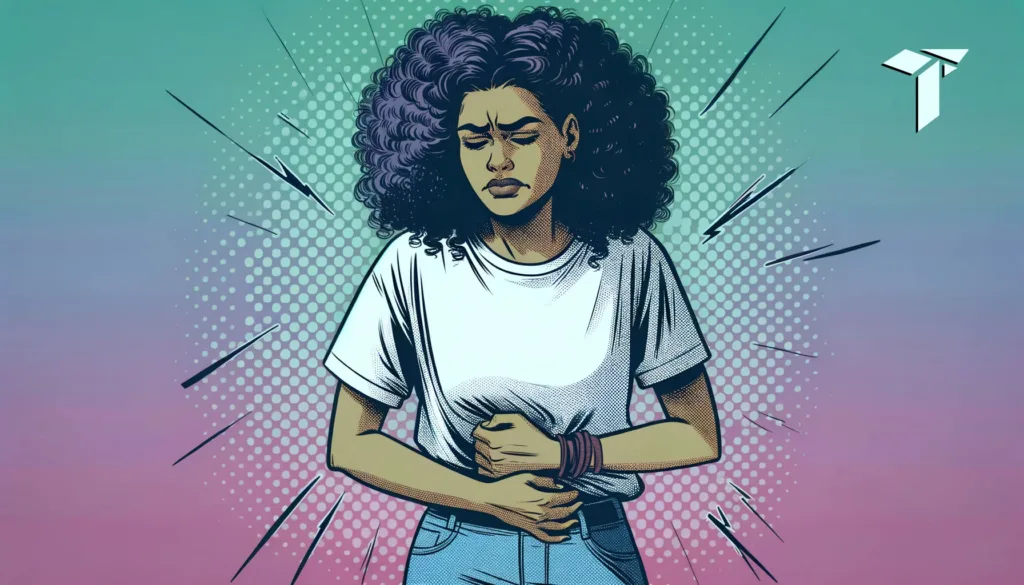
So, you’ve tried everything under the sun to ease those annoying stomach cramps, huh? Yoga, medication, even talking sweetly to your belly in hopes it will start behaving. Don’t worry, you’re not alone!
In this article, we’re going to look at common digestive disorders that could be the culprits behind your persistent stomach cramps and lower left abdominal discomfort. And because we’re focusing on women’s health, we’ll also discuss why these issues tend to target the ladies a bit more.
Now, why should you care about digestive disorders? For starters, understanding what’s going on down there can lead to better treatment options. Plus, knowledge is power, right? And let’s face it: Who wants to be doubled over in pain when you could be out there living your best life?
Why Women?
You may be asking yourself, “Why focus on women?” Good question! Women often experience digestive disorders differently than men, thanks in part to hormonal differences. Yeah, hormones—you know, those things that also give us the pleasure of menstrual cramps and mood swings?
Statistical Data
According to studies, women are more likely to suffer from conditions like Irritable Bowel Syndrome (IBS). In fact, about two-thirds of IBS sufferers are women. So, yeah, it’s not just bad luck.
Types of Digestive Disorders
Irritable Bowel Syndrome (IBS)
Symptoms
Alright, let’s start with a classic: IBS. Ever feel like your stomach’s playing a never-ending game of ping-pong? Yep, that could be IBS. Symptoms often include stomach cramps, bloating, diarrhea, and constipation. A whole mixed bag of fun, isn’t it?
Treatment
Spoiler: It’s not all in your head! While stress can exacerbate IBS, the condition itself is very real. Treatment often involves diet changes, medications like antispasmodics, and sometimes even cognitive behavioral therapy. Ever thought your tummy would need therapy?
Crohn’s Disease
Symptoms
Moving on to Crohn’s disease, this one’s more than just a tummy ache. It’s a type of inflammatory bowel disease that can affect any part of your gastrointestinal tract. Symptoms often include severe diarrhea, fatigue, weight loss, and malnutrition.
Treatment
Treatment usually involves medications like corticosteroids and immunosuppressants, and in severe cases, surgery may be necessary. It’s crucial to work with a healthcare provider for proper diagnosis and treatment.
Diverticulitis
Symptoms
Ever felt sharp, stabbing pains in your abdomen and wondered, “What fresh hell is this?” Welcome to the world of diverticulitis! It usually causes severe abdominal pain, fever, and even changes in your bowel habits.
Treatment
Good news: Most cases can be treated with antibiotics and a liquid diet to give your colon a break. Like a spa day, but for your insides!
Endometriosis
Symptoms
Ah, endometriosis. Is it really a digestive issue? Technically, no. But it can often mimic one. Symptoms include painful periods, pelvic pain, and yes, even digestive problems like diarrhea or constipation.
Treatment
Since it’s not a classic digestive disorder, treatment usually involves hormone therapy or surgical options. Sometimes, treating endometriosis can even improve digestive symptoms. Talk about a two-for-one deal!
Celiac Disease
Symptoms
Last but not least, let’s talk celiac disease. Think you’re just a little sensitive to gluten? Well, it might be more serious than that. Symptoms include diarrhea, bloating, and even skin rashes.
Treatment
Reality check: The only way to truly manage celiac disease is to stick to a strict gluten-free diet. That means saying goodbye to a lot of your favorite comfort foods, but hey, there’s a whole world of gluten-free treats waiting to be discovered!
Diagnosing Digestive Disorders
Consult a Doctor
Alright, we’ve all done it—Googled our symptoms and then freaked out about the worst-case scenarios. But when it comes to digestive disorders, you’ve got to consult a professional. Expect to undergo some tests like blood work, endoscopy, or even a colonoscopy. Don’t worry, they’re not as scary as they sound!
Self-Assessment
Self-assessment can be helpful, but it’s crucial to get it right. You can keep a symptom diary or even use mobile apps designed for this purpose. These details can be invaluable when you finally consult a doctor because let’s be honest, it’s easy to forget stuff when you’re put on the spot, right?
Treatment & Lifestyle Changes
Medication
Most Common Types
First up: medication. While it’s tempting to toss antacids at the problem like confetti, most digestive disorders require targeted medication. We’re talking antispasmodics, anti-inflammatory drugs, and sometimes even antibiotics. No, you can’t just throw antacids at the problem.
Diet Changes
Tips & Tricks
You are what you eat, especially when it comes to digestive health. Ever thought about going low-FODMAP or gluten-free? There’s a time and a place for dietary changes, and it’s usually after consulting a healthcare provider.
Exercise
Why and How It Helps
Last but not least, let’s talk exercise. No, we’re not saying you should start doing crunches the moment you feel a cramp. But regular exercise can improve your digestive health. Breaking a sweat for a happy belly? Totally worth it!
When to Seek Immediate Medical Help
Red Flags: Listen to Your Gut, Literally Sometimes digestive issues aren’t just annoying; they’re signs of a more severe problem. If you’re experiencing symptoms like intense abdominal pain that won’t go away, vomiting blood, or severe dehydration, it’s time to hit the emergency room.
Also, if you notice any sudden changes in your bowel habits that last for more than a couple of weeks, don’t ignore it. It’s better to be safe than sorry, right?
Final Thoughts
We’ve covered a lot of ground, haven’t we? From IBS to Crohn’s, diverticulitis to endometriosis, and even good ol’ celiac disease—digestive disorders are not for the faint of heart. The key is knowing what you’re dealing with so you can treat it effectively. Knowledge is power, remember?
You’re not alone, and solutions do exist. With the right diagnosis and treatment, you can reclaim your life and say goodbye to those debilitating stomach cramps. So, why not take the first step towards a happier, healthier you?
We’d love to hear from you. Got experiences to share or questions to ask? Feel free to leave a comment and let’s get the conversation started.




